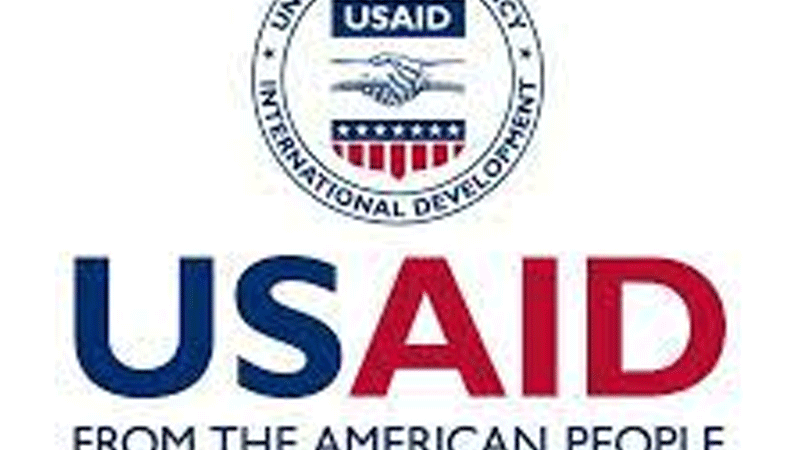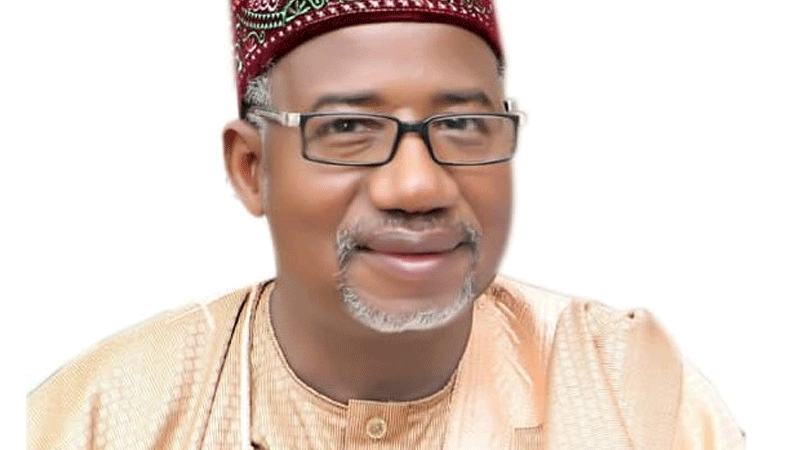•Stock market falls as bond yields rise
Omololu Ogunmade, James Emejo in Abuja, Obinna Chima and Goddy Egene in Lagos
The federal government yesterday raised a committee to cut the size of the N10.59 trillion 2020 budget, which is under threat of underfunding owing to the volatility in global oil prices occasioned by the impacts of the outbreak of COVID-19 and a price war triggered by Saudi Arabia and Russia.
The committee, which was constituted by President Muhammadu Buhari, has as members the Minister of Finance, Budget and National Planning, Mrs. Zainab Ahmed; the Minister of State for Petroleum Resources, Chief Timipre Sylva; the Governor of Central Bank of Nigeria (CBN), Mr. Godwin Emefiele, and the Group Managing Director of the Nigeria National Petroleum Corporation (NNPC), Malam Mele Kyari.
Aside the task of reducing the size of the budget, the committee is also saddled with the responsibility of reducing the oil benchmark from the approved $57 per barrel to reflect the current realities.
By yesterday, the price of London Brent was $35 per barrel while the price of New York Light Brent was $32 per barrel, thus underscoring a notable fall from $49 per barrel global price last week.
Emefiele yesterday in Abuja said the economic impact of the coronavirus was already becoming severe with the declining global oil price, which had crashed to about $35 per barrel, dampened consumer confidence as well as declined private consumption and global demand slowdown.
Owing to these developments, analysts have predicted an imminent devaluation of the naira.
However, reviewing the situation yesterday, Managing Director, Financial Derivative Council and a member of Buhari’s Economic Advisory Council, Mr. Bismarck Rewane, said the country should now face the reality because it knew what to do but was wasting time.
Buhari raised the committee comprising the key managers of the country’s economic resources to undertake a quick study of the impact of coronavirus on the Nigerian economy.
The committee is expected to bear in mind the fall in the global price of crude oil which is the major source of funding for the budget and come up with revised projections.
Answering questions from State House reporters after a meeting with the president, Ahmed said the committee was expected to submit its report to the president on its eventual decision the latest tomorrow.
She explained that the committee would determine a new oil benchmark, the size of a new budget and subsequently make such new decisions public.
She said: “We just met with the president to discuss the matter of the impact of the coronavirus on our economy and Mr. President has formed us into a committee, with the Minister of State, Petroleum Resources, the Central Bank Governor, the GMD NNPC and I as members.
“Our mandate is to make a quick assessment of the impact of this coronavirus on the economy, especially as it affects the crude oil price. We will be writing a report and brief Mr. President tomorrow or Wednesday morning and after that, we’ll also have more substantial information for the press.
“But it is very clear that we will have to revisit the crude oil benchmark price that we have of $57 per barrel; we have to revisit it and lower the price. Where it will be lowered is the subject of the work of this committee.
“What the impact will be on that is that there will be reduced revenue to fund the budget and it will mean cutting the size of the budget. The quantum of the cut is what we are supposed to assess as a committee.
“This is just an initial update to inform you on the directives that we have and subsequently we will be sending a report to the president, after which we will be briefing the press on the actions that government will be taking.”
Buhari, on December 17, 2019, had signed the N10.59 trillion budget, made up of N4.84 trillion recurrent expenditure, N2.46 trillion capital expenditure, N2.72 trillion for debt servicing, fiscal deficit of N2.28 trillion and deficit to Gross Domestic Product (GDP) ratio of 1.52 per cent.
The Appropriation Act was also predicated on certain projections, including a crude oil production volume of 2.18 million barrel per day, oil benchmark of $57, N305/$ exchange rate, the GDP growth rate of 2.93 per cent, the inflation rate of 10.81 per cent and statutory transfer of N556.7 billion
Also answering questions yesterday on whether Nigeria would engage Russia on the controversies involving the Organisation of Petroleum Exporting Countries (OPEC), Sylva said Nigeria lacked the power to solely undertake such a move.
According to him, the reality of the current situation will soon dawn on everyone and both OPEC and OPEC+ may meet, adding that meaningful engagement is also expected to take place between Russia and Saudi Arabia.
Ahmed had earlier in response to THISDAY’s inquiry on the federal government’s next step in view of the grim economic data, said: “Our programme is on course. We have not yet seen a need to adjust our plans. We are watching and assessing the situation.”
The negative investor sentiment that trailed the crash in crude oil price on Sunday night has also hit the stock market as the market depreciated.
The fixed income market also reacted negatively as yields went up.
The stock market fell by 2.39 per cent yesterday as the bears took over control. The bears pulled the Nigerian Stock Exchange (NSE) All-Share Index down, from 26,276.61 to 25,647.54, while market capitalisation shed N328 billion, declining from N13.695 trillion to N13.367 trillion.
Shedding light on the performance in the fixed income market, the CEO, Afrinvest Securities Limited, Mr. Ayodeji Ebo, said there was significant sell-off in the market yesterday, especially by foreign investors.
Bond Yield Increased to an Average of 13.5
Analysts have predicted an imminent devaluation of the nation’s currency.
Emefiele, had last year, said if crude price drop below $45 per barrel and at the same time the external reserves fell below $30 billion, the bank might be compelled to devalue the naira.
Nigeria’s external reserves stood at $36.221 billion as at last Thursday, according to data obtained on the CBN website.
The spreading coronavirus has seen the global financial markets plummet.
Speaking with THISDAY yesterday, Rewane, while responding to the crash in crude oil price said: “Now the shit has hit the fan and there is nowhere to hide anymore. It is now time for us to face reality.”
When asked on the way forward, Rewane said: “We knew the way forward all these while; we knew what to do, but we were wasting time. But this is crunch time.”
When asked about the contribution of the EAC, of which he is a member, he said: “The advice is between the council and the president and not for us to be advising members of the public.”
To analysts at CSL Stockbrokers Limited, with the development in the oil market, the rhetoric about an impending naira devaluation would gather momentum, considering the elevated threat to foreign exchange earnings and in turn the nation’s forex reserves, which the CBN relies on to maintain liquidity and support the local currency.
The Lagos-based investment and research firm noted that the prospect of reconciliation between Saudi Arabia and Russia was uncertain, just as it stated that oil prices trading at current levels for a prolonged period would significantly undermine government revenue considering that the 2020 budget was benchmarked on an oil price assumption of $57 per barrel.
“With elevated debt servicing cost, rising recurrent expenditure amidst weak fiscal buffers, we are of the opinion that the nation may be on course for another fiscal crisis. That said, we anticipate a widespread sell-off in the financial markets as investors scale down on their holdings to gain more clarity on the developments in the oil markets,” it added.
Also, the CEO, CGF Advisory, Mr. Tilewa Adebajo, advised the federal government to adopt fiscal prudence measures.
He said key policy reforms would be imperative to support and sustain macroeconomic stability.
These, it listed to include, among others, a foreign exchange management framework that reflects the market fundamentals, the acceleration of the country’s economic diversification agenda and the oil and gas sector reform, among others.
In addition, it advised the federal government to cut overhead and recurrent expenditure, while increasing capital expenditure to total budget ratio.
Also, economist and former Director-General, Abuja Chamber of Commerce and Industry (ACCI), Dr. Chijioke Ekechukwu, recommended a possible downward review of the budget as well as eliminate wasteful expenditure as a response to the falling price of oil.
He also said the government would need to quickly increase the revenue base from other frontiers like tax efficiency without increasing taxes as well as ensuring that every government revenue-generating agency is held accountable.
He said: “There is fear that we may be heading for another recession. The oil price shock like we have today has always been my fear for our economy that does not have control over that major factor that drives its economy, the oil price.
“Our reserves will be eroded very fast and give room for a very high exchange rate in the short to long run. Borrowing has become inevitable to fund our budget. We can, however, also review our budget downwards and eliminate unnecessary expenditure items or bloated items in the budget”.
To Senior Research Analyst at FXTM, Lukman Otunuga, the depreciation in oil prices could not have come at a more disruptive and critical time for the Nigerian economy.
According to him, “this is bad news for many emerging market energy producers, including Nigeria. The country’s export earnings and government revenues will take a direct hit from the steep decline in oil prices.”





